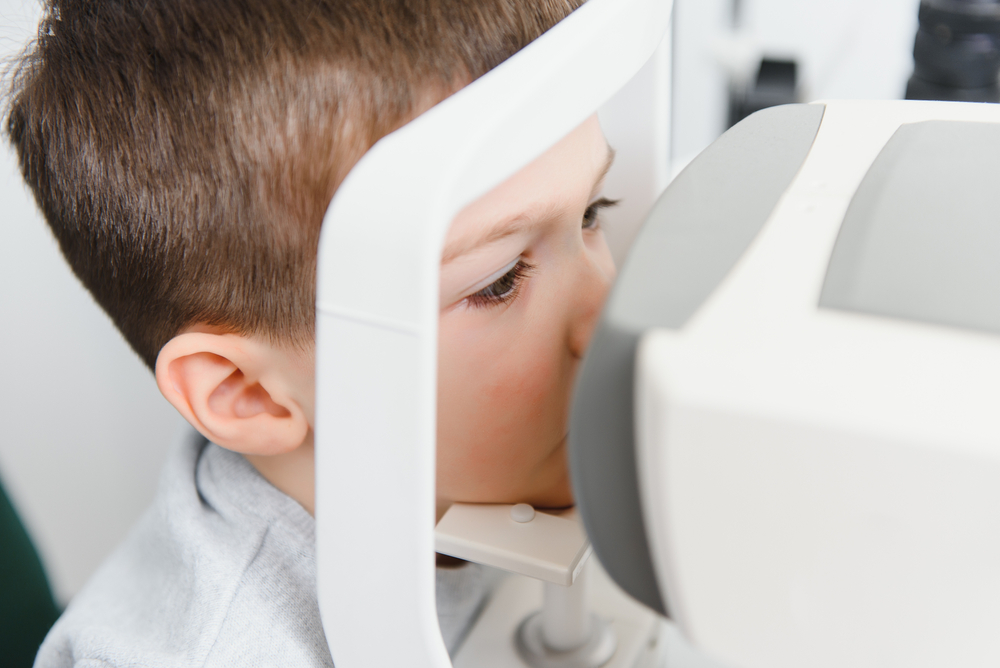
Myopia is an eyesight problem affecting a significant number of children worldwide. It's a condition where objects far away appear blurry, but those that are close can be seen clearly. Understanding the causes, symptoms, and early intervention of myopia in children is the first step towards managing it effectively.
Signs and Symptoms of Myopia in Children
Recognizing the signs and symptoms of myopia in children is a vital step in ensuring early intervention. Some common signs include difficulty reading the blackboard at school, squinting when trying to focus on distant objects, frequent headaches due to eyestrain, and sitting too close to the television or holding books too close while reading.
It's essential to pay close attention to these signs, as children often don't realize they have a vision problem. They might think that their blurry vision is normal because they have no other point of comparison. In addition, children might not articulate their vision difficulties effectively, making it even more crucial for parents and teachers to be vigilant.
Regular eye check-ups are also a good practice to catch any vision problems early. These check-ups can help identify not only myopia but also other eye conditions that can affect a child's vision.
The Importance of Early Intervention for Myopia
Myopia tends to progress rapidly in growing children, especially between the ages of six and eighteen. If myopia is not promptly and properly managed, it could lead to high myopia, which increases the risk of serious eye conditions in the future.
Early intervention aids in slowing down the progression of myopia, thus reducing the risk of these severe eye conditions. It also helps improve the child's quality of life by reducing the inconvenience caused by blurry vision. A child with well-managed myopia will have a lesser burden on their daily activities, academic performance, and social interactions.
Myopia Management Methods for Children
There are several myopia management methods for children that can effectively slow down the progression of myopia. These methods include wearing corrective glasses or contact lenses, orthokeratology (Ortho-K), low-dose atropine eye drops, and bifocal or multifocal glasses or contact lenses.
Orthokeratology involves wearing specially designed contact lenses overnight that reshape the cornea temporarily, allowing clear vision during the day without the need for glasses or contact lenses.
Low-dose atropine eye drops, on the other hand, are used daily and work by temporarily relaxing the eyes' focusing mechanism, reducing myopia progression.
Bifocal or multifocal glasses or contact lenses contain different prescription powers in different areas of the lens, helping to correct the blurry vision caused by myopia. It's important to remember that these methods do not cure myopia; instead, they help manage it and slow down its progression.
How to Prevent the Progression of Myopia in Children
While it might not be possible to prevent the onset of myopia, especially if it's genetically predisposed, there are ways to slow down its progression. One effective way is to encourage children to spend more time outdoors. Research has shown that exposure to natural sunlight and focusing on distant objects outdoors can slow down the progression of myopia.
Limiting screen time is another effective strategy. Long hours spent on computers, tablets, and phones can strain the eyes, leading to the progression of myopia. Encourage regular breaks from screens and promote activities that do not involve close-up work.
Regular eye check-ups are also vital in preventing the progression of myopia. Through regular check-ups, any changes in the child's vision can be detected early, and appropriate measures can be taken.
Prioritizing Vision Health
Myopia in children is a prevalent issue that needs to be addressed promptly and effectively. Understanding the signs and symptoms of myopia, recognizing the importance of early intervention, knowing the myopia management methods, and taking steps to prevent its progression are all crucial aspects of ensuring our children's vision health.
If your child is showing signs or symptoms of myopia, schedule an eye exam with our optometrist at Keelan Eyecare in our Point Pleasant, New Jersey, office. We provide quality eye care services and products for the entire family. Please call (732) 458-4800 to schedule an appointment today.





